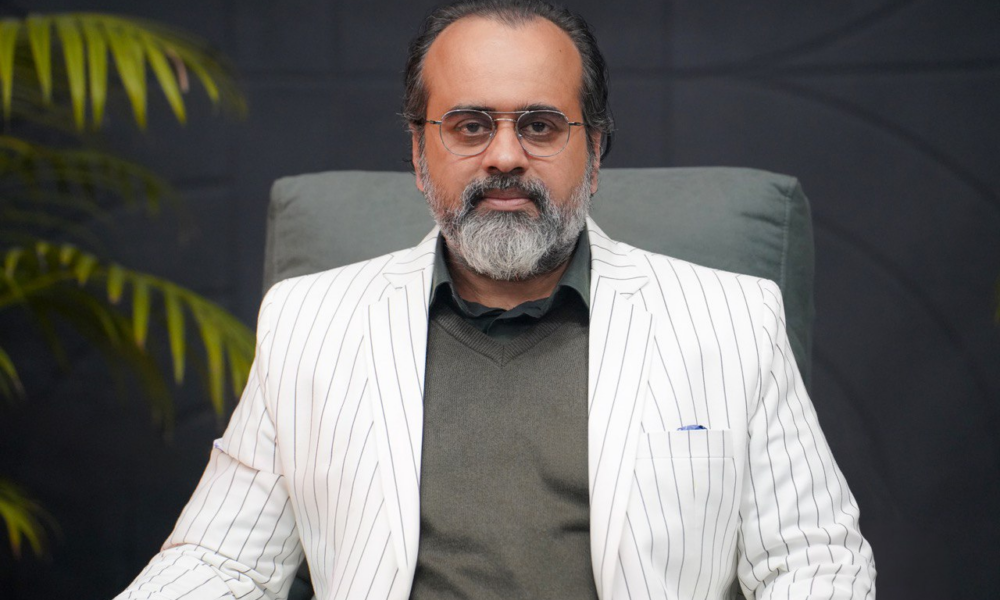“Decoding the UPSC Frenzy: Acharya Prashant’s Analysis of Cultural Pressures and Coaching Exploitation”

The recent tragedies involving UPSC aspirants in New Delhi have cast a harsh spotlight on the relentless pursuit of a career in civil services. As headlines across the nation focus on the dire conditions faced by these students, Acharya Prashant, an Indian philosopher, author, and Advaita teacher with an IIT-Delhi and IIM-Ahmedabad background, and a former civil servant himself, offers a sobering perspective on this intense phenomenon. With his unique perspective, Acharya Prashant sheds light on the underlying issues of cultural conditioning and the predatory practices of the coaching industry.
The Cultural Drive Behind the UPSC Obsession
The allure of a government job, particularly within the civil services, is deeply ingrained in Indian culture. It’s viewed not merely as employment but as a symbol of prestige, security, and success. This cultural ethos drives many young individuals to embark on the arduous journey of UPSC preparation, often from a very young age. Families push their children into this pursuit, viewing it as the ultimate path to stability and honor.
Acharya Prashant points out that this societal push is rooted in the belief that life should be a maximization of pleasure and prestige with minimal effort. The civil services are perceived as a route to this ideal, despite the grueling reality of the preparation process.
The Coaching Industry: A Profitable Mirage
The coaching industry, with its booming presence in cities like New Delhi’s Mukherjee Nagar and Rajendra Nagar, plays a significant role in amplifying this craze. Over the past decade, the number of UPSC aspirants has more than doubled, yet the number of vacancies remains largely static. This dramatic increase in candidates has fueled the growth of coaching centers that promise to turn hopefuls into successful civil servants.
However, this promise often comes at a steep price. Aspirants frequently find themselves ensnared in a web of high fees, exorbitant accommodation costs, and other expenses. The cost of coaching, combined with living expenses, can easily reach several lakhs of rupees. Acharya Prashant highlights that many families sacrifice their savings or even sell assets to fund their child’s preparation. Despite the financial strain, the allure of becoming an IAS officer or another high-ranking official remains irresistible.
The Harsh Reality: Disillusionment and Exploitation
The reality, however, is starkly different from the glamour portrayed by coaching institutes and social media. The probability of clearing the UPSC exam is exceedingly low. With over ten lakh candidates competing for around a thousand seats annually, the odds of success are dishearteningly slim. Acharya Prashant notes that despite the extensive preparation and the financial and emotional investment, the actual competition is among a much smaller pool of serious contenders, estimated to be between 5,000 and 10,000.
This overwhelming competition and the inflated expectations contribute to a cycle of disillusionment and mental stress. Many aspirants find themselves trapped in a system where the continuous failure to secure a position leads to profound personal and financial hardship. Yet, the cultural conditioning and the deep-seated belief in the “IAS dream” prevent many from reconsidering their paths.
A Call for Change: Rethinking Aspirations and Opportunities
Acharya Prashant advocates for a critical reassessment of this pursuit. He suggests imposing limits on the number of attempts and age restrictions for the UPSC exam to prevent prolonged struggles and to ensure a more realistic approach to career planning. Additionally, there is a pressing need to diversify career aspirations and to foster an environment that encourages innovation and entrepreneurship.
The current scenario represents a tremendous national loss. The time and energy invested in chasing a single dream could be redirected toward more fruitful endeavors that offer better personal and professional outcomes. The focus should shift from a singular obsession with government jobs to a broader appreciation of diverse career paths and opportunities.
Conclusion
Acharya Prashant’s insights reveal a pressing need to address the cultural and systemic issues surrounding the UPSC craze. While the dream of joining the civil services is valid for those truly suited for it, the broader implications of this obsession demand a critical examination. As the nation reflects on the high cost of this dream, it is essential to foster a more inclusive and realistic view of career success. Balancing aspiration with practicality can help ensure that the pursuit of dreams does not come at the expense of personal well-being and financial stability.
The UPSC craze is not merely about an exam; it is a reflection of deeper societal values and systemic failures. Recognizing and addressing these issues can pave the way for a more balanced and fulfilling approach to career aspirations.





